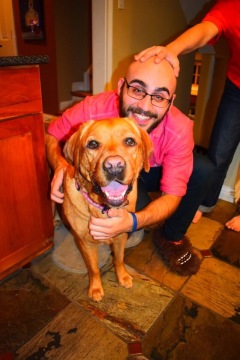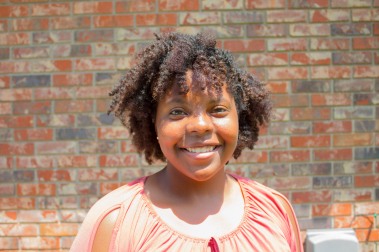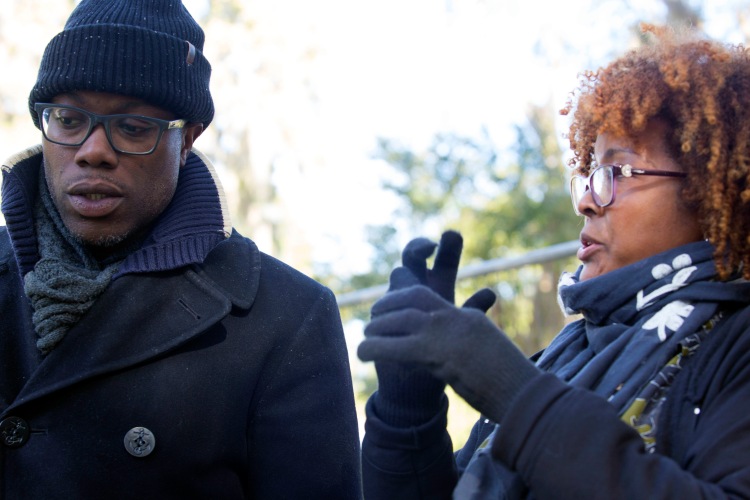This fall, five students join the Gullah Project’s volunteer team. During this time, they will perform a wide range of tasks relating to their own professional areas of interest. These tasks include transcribing footage, creating posts for social media, writing blogs, editing, assisting the director and doing research for production. This will give the volunteers hands on experience for their future, introduce and teach them more about Gullah/Geechee culture. The volunteers will also work closely with the film’s director, Denise McGill, and producer, Sherard Duvall, through their work with The Gullah Project.
Through this opportunity, our volunteers will learn more about the Gullah culture and the importance of the land preservation on St. Helena Island. As the volunteers continue their work throughout the semester, we hope they will gain valuable experience and see the impact they are able to make.
How did you learn about The Gullah Project?
Jai: I learned about the Gullah project through Mr. Duvall’s film production class at Columbia College.
Valencia: I heard about The Gullah Project while looking for an internship two summers ago. I’ve volunteered since then and took an official internship position this fall.
Brianna: I was interested in learning more about the Gullah culture and wanted to learn more about documentaries and the work put into creating them.
Samantha: I heard about it from a school email. After reading about it, I thought it would be interesting to learn more about the process of making a documentary and the Gullah culture.
Kimmie: I learned about The Gullah Project through a teacher who sent out an email blast. I’m from Charleston, about an hour from St. Helena, which is one of the reasons I find this project so interesting, because I was that close and didn’t know this was going on.
What are you most excited about volunteering for The Gullah Project?
Jai: The most exciting thing about The Gullah Project experience is learning about the culture, the dialect, art and getting to interact with the people and learn about their lifestyle. Also, learning about Gullah/Geechee history with other students and engaging in discussion about what’s currently happening to the low country.
Valencia: I’m most excited about getting a more behind the scenes look into The Gullah Project. Since I’ve been working with The Gullah Project for a while, I can’t wait to see how everything comes together
Brianna: I’m excited about seeing this documentary come together and bring attention to the culture of Gullah people.
Samantha: I’m excited about learning more about the Gullah culture, specifically the people living on St. Helena Island. It will also be cool to see what goes into making a documentary like The Gullah Project.
Kimmie: I think the project is cool because it’s talking about something important, and there’s so many talented people working on it. It’s a good learning experience because it is already established and actively working towards completion.
Our Volunteers
Jai Anna Carter is a senior at Columbia College where she studies Studio Arts, Communications and Public Relations. She assists with social media and monitors Gullah/Geechee upcoming events and news.
Valencia Abraham is senior Visual Communications major at the University of South Carolina. Her responsibilities include transcription, assisting with grants/paperwork and assisting the director, Professor McGill.
Brianna Morales (not pictured) is a senior at University of South Carolina and studies Visual Communications. She is responsible for tagging and transcribing film footage.
Samantha Hayes is a senior at University of South Carolina and is a Public Relations major. She is responsible for transcribing footage as well as writing for The Gullah Project blog. (Yep. This one!)
Kimberly Hilton is a senior at the University of South Carolina. She is a Media Arts major. She tags, organizes and transcribes film footage.








 Teleshia: So far, I learned how important it is to preserve a culture. I knew of the Gullah community, but working on this project I learned their different cultural traditions and how they’re trying to work together to protect their land and culture.
Teleshia: So far, I learned how important it is to preserve a culture. I knew of the Gullah community, but working on this project I learned their different cultural traditions and how they’re trying to work together to protect their land and culture.



You must be logged in to post a comment.